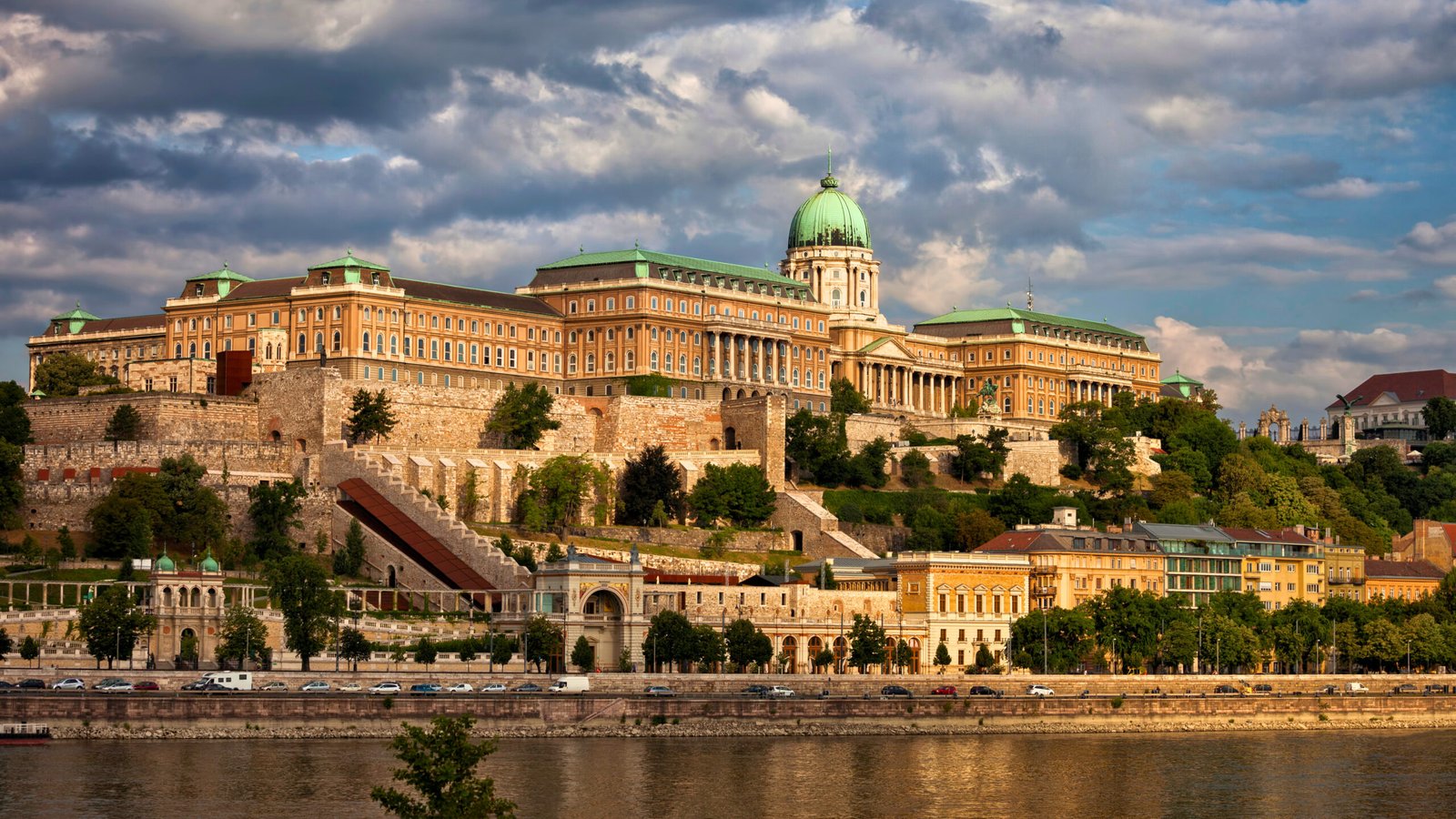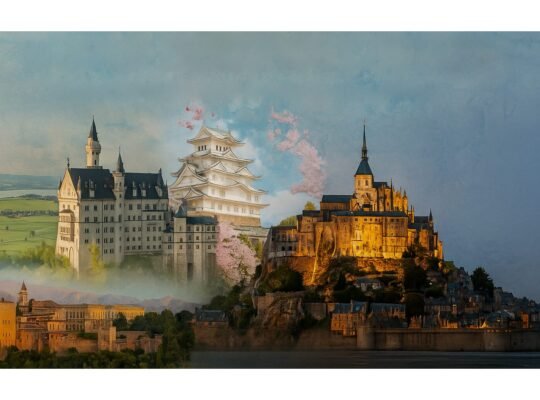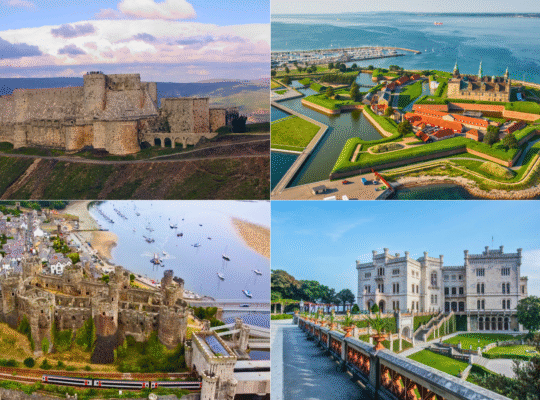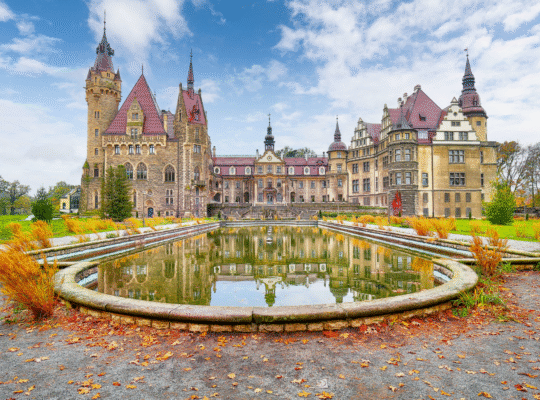Standing proudly over the Danube, Buda Castle is one of those places that completely pulls you in. If you’ve ever wandered through a European capital wondering what stories its buildings could tell, this is the place where you actually get some answers. Part medieval fortress, part royal palace, and part cultural hub, it has weathered everything from Mongol invasions to World War II bombings. And somehow, it’s still stunning.
When I visited, I didn’t just feel like I was walking through history—I felt like I was being watched by it. The walls, the stones, the statues—they’ve seen kings crowned, libraries looted, and cities rise and fall. And if you’ve never heard the legend about Dracula’s imprisonment here… well, you’re in for a surprise.
Here’s everything you need to know about Buda Castle—how it came to be, what makes it special, and why it absolutely deserves a spot on your travel list.
Quick Facts
📍 Location: Budapest, Hungary (Castle Hill, District I)
🏗️ Construction Year: First built in 1247, major Baroque rebuild between 1749–1769
🏰 Architectural Style: Gothic foundations, Renaissance touches, Baroque palace
🎭 Famous For: Royal palace, WWII history, museums, and incredible views
👑 Notable Residents: King Béla IV, King Matthias Corvinus, Habsburg royalty
🏆 UNESCO Status: Yes, part of the Banks of the Danube World Heritage Site
🌐 Website: https://budacastlebudapest.com/
A Castle Forged by Survival
The story begins in the 13th century, right after the Mongols swept through Hungary. King Béla IV decided that the best way to prepare for next time was to build a proper hilltop fortress. That hill? Castle Hill. That fortress? Buda Castle.
By the 15th century, under King Matthias, Buda Castle hit its first real golden age. The place was transformed into a true Renaissance palace, complete with an epic library (which, tragically, was stolen during the Ottoman occupation). Then came the Habsburgs, who went full Baroque in the 18th century and reshaped the palace into what you see today. The thing has basically had more makeovers than a TV soap opera.
During World War II, the castle took a beating in the Siege of Budapest. Post-war restorations uncovered medieval and Renaissance elements beneath the newer facades. Layers of history, literally. You can actually stand in a courtyard where Gothic walls frame a Baroque staircase. It’s like a crash course in European architecture packed into one hill.

Design, Details, and Underground Secrets
You know how some buildings have a clear style? Buda Castle is not one of them—and that’s what makes it fascinating. The Gothic bones are still there if you know where to look. So are the Renaissance details King Matthias introduced. But the showstopper is the Baroque façade, with its grand staircases, courtyards, and dome.
Some highlights:
• The Matthias Fountain: A romantic statue with a sad twist. Think Hungarian legend meets operatic drama.
• Lion Courtyard: The main entrance, watched over by four stoic stone lions.
• Savoy Terrace: Perfect for soaking up views of the Danube and Pest side without the crowds.
• Vienna Gate: One of the oldest surviving parts of the castle district, offering a symbolic entrance to the historical area.
But what really adds mystery to the place is what’s underneath it.
Beneath the castle lies a natural cave system. Over the centuries, it’s been used as everything from a wine cellar to a prison to a wartime hospital. The nearby Hospital in the Rock Museum gives a glimpse into how chillingly real that last part was. During World War II, this underground network became a fully functional emergency medical center—and later, a nuclear bunker during the Cold War. If that’s not enough to raise your curiosity, some parts still haven’t been fully explored or opened to the public.

Legends That Linger
Like all great castles, Buda has its share of ghost stories and legends. My personal favorite? The rumor that Vlad the Impaler—yes, the real Dracula—was imprisoned here by King Matthias. No fangs or bats involved, but the setting is eerie enough.
There’s also the tale of the lost Corvinus Library. People say parts of it might still be hidden behind the castle walls. Whether that’s true or not, the thought alone gives the place an air of mystery. Imagine stumbling upon a dusty chamber filled with ancient manuscripts just waiting to be rediscovered.
And then there’s the White Lady. Locals claim her ghost roams the courtyards on misty nights, predicting doom or change. Classic. Guides say she’s especially active around the old well—so maybe avoid that spot if you’re superstitious.

Visiting Buda Castle: What You Need to Know
Best Times to Go
🌸 Spring: Blooming gardens and fewer crowds
☀️ Summer: Longer days, busy festivals
🍂 Autumn: Crisp air, golden leaves, and wine events
❄️ Winter: Peaceful charm and Christmas markets
💡 Local Tip: Go at sunset. Watch the sky turn pink behind the dome, then stick around to see everything lit up.
How to Get There
🚡 Funicular: The old-school way, running since 1870
🚌 Castle Shuttle: Easy, electric, and great for anyone avoiding the hill climb
🚶♂️ Tóth Árpád Promenade: A scenic walk with unbeatable views (and way fewer tourists)
If you're coming from the Pest side, take the Chain Bridge for a picturesque approach. From there, you can either ride the funicular or walk the serpentine paths up Castle Hill. Both routes offer their own charm.
Tickets & Tours
🏰 Castle Grounds: Free to explore
🎨 Hungarian National Gallery: 4,200 HUF (~€10.30)
🏛️ Budapest History Museum: 3,800 HUF (~€9.30)
🎟️ Combo Tickets: Worth it if you plan to dive deep
🗺️ Guided Tours: Highly recommended for the full experience—including underground spots
Accessibility & Tips
♿ Accessibility: Mostly accessible, though cobblestones can be tough in some spots.
📷 Photography: Allowed on the grounds; leave the tripod at home for museum interiors.
☕ Local Favorite: After all that walking, grab a slice of cake and a coffee at Ruszwurm Café—Budapest’s oldest pastry shop, open since 1827. Don’t miss the krémes (cream cake)—locals swear by it.

What Else to See Nearby
🛡️ Fisherman’s Bastion: Looks straight out of a fairytale. Climb the towers. Trust me.
⛪ Matthias Church: Zsolnay roof tiles + colorful frescoes = gorgeous.
🏥 Hospital in the Rock: Cold War meets underground ER.
♨️ Gellért Spa: Thermal bath heaven.
🛍️ Castle Garden Bazaar: Garden, art, river views, and a great place to stroll.
📚 National Széchényi Library: A quiet retreat within the castle complex for book lovers.
Where to Eat
🍽️ Pest-Buda Bistro: Hearty Hungarian classics with a twist.
🥐 Walzer Café: Cozy and quiet, perfect for a light breakfast or an afternoon break.
🍷 21 Hungarian Kitchen: For modern local cuisine in a relaxed, stylish setting.
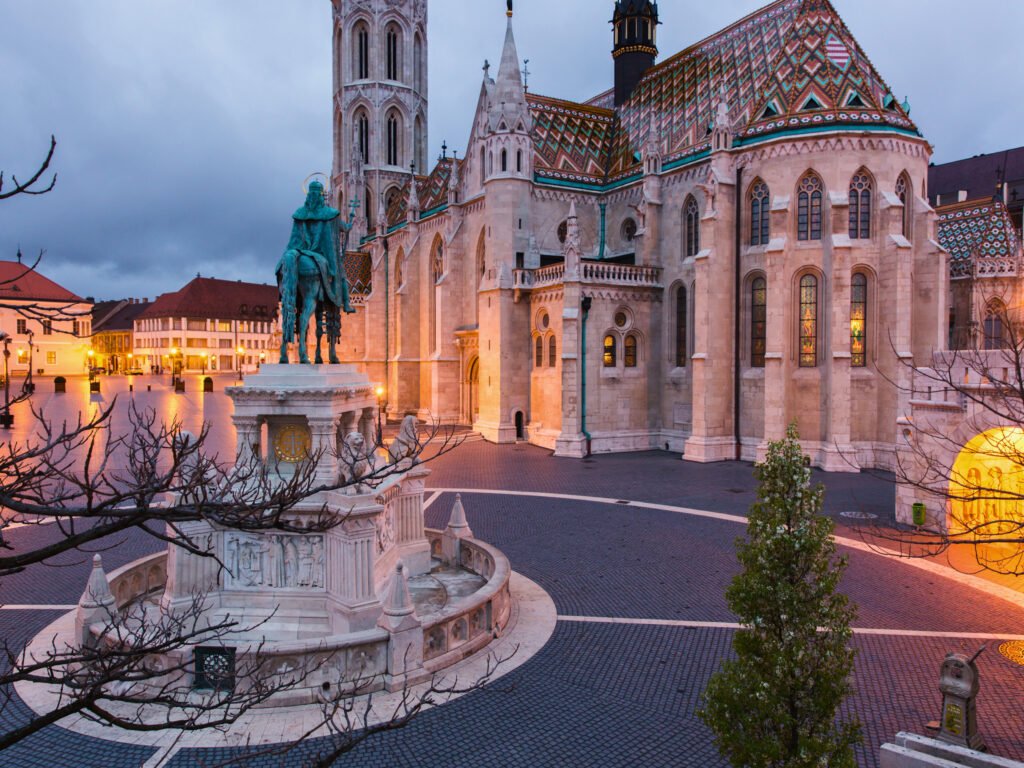
Why Buda Castle Belongs on Your List
You don’t have to be a history buff to love this place. It has layers. It has legends. It has jaw-dropping views. Whether you're wandering cobbled courtyards, discovering underground passages, or just catching your breath with a view over the Danube, Buda Castle delivers.
Have you been to Buda Castle? Let me know what you thought.
👉 And if you’re a castle chaser like me, don’t stop here. Head to Poland and see the massive Malbork Castle—the largest brick fortress in the world. Or for a romantic ruin like something out of a fantasy novel, check out the dreamy Castle of la Mothe-Chandeniers in France.
🏰✨ Need more inspiration? Follow us on Instagram, Pinterest, Facebook, and X for more castle guides, hidden gems, and travel stories that go beyond the usual tourist trails. And if this post helped you out, hit the blog for more unforgettable destinations. Adventure awaits—and Buda Castle is just the beginning.

